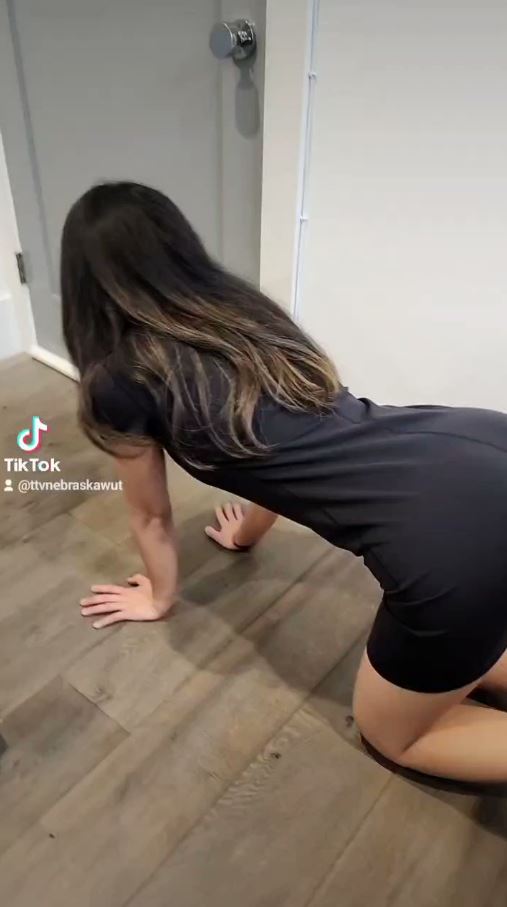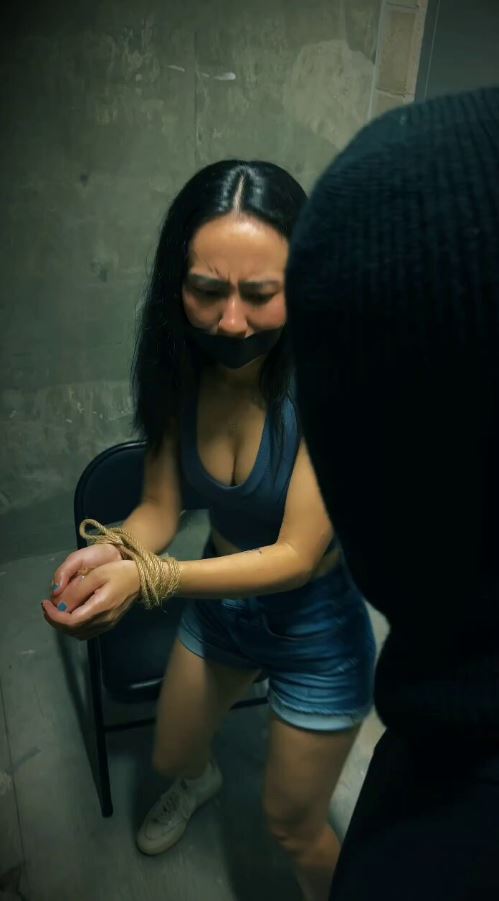Alana Cho Leaked Unraveling the Mystery Behind the Controversy
In the digital age, stories can explode online with unstoppable force, often leaving the general public scrambling to understand what actually happened. One such case is the mysterious “Alana Cho leaked” controversy, which has rapidly become a trending topic across various social media platforms and news outlets. In this comprehensive guide, we will dissect every facet of this incident—from who Alana Cho is, to how the alleged leaks surfaced, to what lessons this event can offer us about privacy, online reputations, and the power of social media. This 2,000-word article is designed to be SEO-friendly, presenting structured information and comprehensive insights for anyone seeking clarity on the “Alana Cho leaked” phenomenon.
Contents
- 1 1. Introduction: Setting the Stage
- 2 2. Who Is Alana Cho?
- 3 3. What Does “Alana Cho Leaked” Mean?
- 4 4. The Online Frenzy: How Rumors Spread
- 5 5. The Search for Credible Sources
- 6 6. Privacy in the Digital Age
- 7 7. The Human Toll of Online Scandals
- 8 8. Legal Implications and Possible Consequences
- 9 9. The Role of Social Media Companies
- 10 10. Alana Cho’s Potential Response
- 11 11. Public Reaction and Fan Community
- 12 12. Media Ethics and Responsible Reporting
- 13 13. Lessons for Aspiring Public Figures
- 14 14. Broader Cultural Reflections
1. Introduction: Setting the Stage
“Alana Cho leaked” is a phrase that has been making the rounds on popular search engines and social networks over the past few weeks. But who is Alana Cho? Why is there so much buzz around her name and this alleged leak? The digital world can be unforgiving, and controversies can quickly take on a life of their own, amplifying rumors and half-truths until they become nearly indistinguishable from facts. In an era dominated by viral content, it is essential to step back, examine the available information, and analyze the situation objectively.
For those unfamiliar with the story, “Alana Cho leaked” refers to alleged private or confidential material—be it photos, videos, text messages, or other forms of media—said to involve Alana Cho, which have been leaked onto the internet without her consent. As with many internet “leaks,” details are patchy, and it can be challenging to verify their authenticity. Nevertheless, the incident has garnered attention not only because of the potential privacy violation but also due to the broader issues it raises around cyber ethics, online harassment, and the very nature of fame in the digital age.
This article aims to present a holistic picture of the “Alana Cho leaked” controversy. We’ll explore who Alana Cho is, what we know about the leak, the public response, the legal and ethical questions at play, and how this event reflects our modern-day media consumption. By the end, readers should have a clearer understanding of the complexities of this case, the dangers of jumping to conclusions, and the significance of responsible internet usage.
2. Who Is Alana Cho?
Before diving into the specifics of the leak, it’s crucial to establish a foundation: Who exactly is Alana Cho? While not a household name, Alana Cho has a growing presence in the public eye—particularly on social media. Known for her fashion-forward style, charismatic personality, and entrepreneurial spirit, Alana Cho is often described as an emerging influencer and content creator. Over the past few years, she has steadily built a follower base that admires her sense of style, lifestyle tips, and candid, relatable posts about her personal life.
Although still on the rise, Alana Cho’s brand revolves around authenticity and engagement. She frequently interacts with her fans, hosts live sessions, and collaborates with other creators. Despite not having the global recognition of mainstream celebrities, she has carved out a niche for herself in the competitive world of social media. It is this visibility that potentially makes her a target for hackers and individuals looking to exploit personal information.

Some fans consider Alana Cho a role model, highlighting her philanthropic efforts and her willingness to discuss mental health issues. Others admire her entrepreneurial ventures, which include a budding clothing line and collaborations with well-known brands. Being in the public eye, however, comes at a cost: intense scrutiny, rumors, and sometimes destructive attempts to tarnish one’s reputation. The “Alana Cho leaked” controversy may be a direct result of that spotlight.
3. What Does “Alana Cho Leaked” Mean?
When people say “Alana Cho leaked,” they are typically referencing rumored or alleged private material—photos, videos, or messages—that were supposedly shared without her permission. The term “leaked” implies an unauthorized release of content that was meant to be private. In the internet era, leaks often involve personal moments captured on camera, intimate text messages, or business-related documents that someone has maliciously or unwittingly posted online.
In some cases, these leaks can be orchestrated by hackers who target public figures for financial gain or notoriety. In other scenarios, leaks arise from acquaintances or insiders who may have had access to private details. Yet, not all “leaks” turn out to be genuine. It’s possible for rumors to gain traction online when no real evidence exists. In the case of Alana Cho, conflicting accounts make it challenging to determine the leak’s authenticity.
Whether it is a case of malicious hacking, insider betrayal, or a complete fabrication, the “Alana Cho leaked” rumor has dominated the online conversation. People scour the internet for more information, screenshots, or videos. Meanwhile, the rumor’s viral nature can inadvertently damage the reputation of the person involved, regardless of the leak’s legitimacy. This underscores the importance of verifying sources and approaching trending topics with caution. Once a story has gained momentum, it can be exceedingly difficult to reverse the public perception that has formed.
4. The Online Frenzy: How Rumors Spread
Stories like “Alana Cho leaked” spread like wildfire in today’s fast-paced digital environment. In the past, tabloids and sensational news outlets were the main channels through which such rumors circulated. However, social media has drastically altered the landscape. Platforms like Twitter, Reddit, TikTok, and Instagram now serve as primary information (and misinformation) distribution hubs. Within minutes, a single post or video can be seen by thousands—if not millions—of people, who then share, comment, and add their own twists to the story.

Algorithms designed to promote engaging content also play a role. Stories that elicit strong emotional reactions—be it shock, outrage, or curiosity—tend to receive more visibility. Consequently, the “Alana Cho leaked” narrative was thrust to the forefront of social media trends, attracting an ever-expanding audience. Discussions, reaction videos, and posts analyzing alleged evidence all contributed to the intense speculation.
Additionally, influencers and micro-celebrities sometimes latch onto viral topics to boost engagement, often without verifying facts. This phenomenon can further intensify the spread of rumors. In some instances, the buzz can overshadow more serious issues, filling news feeds with clickbait headlines and sensationalist takes rather than objective journalism. This cycle perpetuates the rumor, creating a digital echo chamber. By the time the dust settles, the damage—both personal and professional—can be significant.
5. The Search for Credible Sources
With so much attention on “Alana Cho leaked,” many people are left wondering: Where can I find accurate, unbiased information? This is where reputable journalism and official statements come into play. In a world awash with misinformation, readers are urged to consult well-regarded news outlets, official press releases, or directly verified sources—such as Alana Cho’s own social media or her management team.
However, as of this writing, there appears to be minimal official confirmation or denial regarding the leak from Alana Cho herself. Some speculate this silence could be due to legal considerations, personal privacy concerns, or simply a strategic choice to let the rumors die down. Without a clear statement, the door remains open for continued speculation, making it all the more essential that consumers of this story practice critical thinking.
If Alana Cho or her representatives release a statement, it would likely help clarify the situation—providing either evidence of the leak’s existence or refuting the claims altogether. Until then, readers are encouraged to distinguish between legitimate journalism and sensationalist gossip sites that often jump to conclusions. If you come across claims that seem extraordinary or lack credible sources, treat them with caution. The internet is rife with manipulated images, fabricated videos, and misleading narratives.
6. Privacy in the Digital Age
The “Alana Cho leaked” controversy highlights a broader issue that extends beyond any single individual: the erosion of privacy in the digital age. Whether you are a high-profile celebrity, a social media influencer, or an everyday internet user, your personal data, images, and messages can be vulnerable to unauthorized access and exposure. As technology advances, so do the tactics employed by those seeking to exploit personal information.

High-profile leaks range from celebrities’ phone hacks to the release of sensitive corporate documents. These incidents serve as a grim reminder that nobody is entirely immune from data breaches. When private content is made public, the individual’s life can be upended—leading to emotional stress, reputational damage, and in some cases, legal ramifications.
In Alana Cho’s case, if a leak did occur, it might point to vulnerabilities in her digital security measures or highlight the malicious actions of those who gained unauthorized access. Yet, the responsibility doesn’t fall solely on individuals. Platforms, internet service providers, and even governments all have roles to play in upholding cybersecurity standards. Furthermore, these incidents underscore the imperative of educating the public about password safety, two-factor authentication, and best practices when sharing content online.
7. The Human Toll of Online Scandals
Beyond the headlines and sensational taglines lies the real human experience. Being at the center of a leak—or even a rumored leak—can exact a heavy emotional and psychological toll. Public figures like Alana Cho may project confidence and resilience, but they are not impervious to the anxiety and stress that come with public scrutiny. The constant barrage of questions, hateful comments, and speculations can lead to serious mental health challenges.
Moreover, personal relationships can be strained. Friends, family, and romantic partners may feel the brunt of the controversy as well. People in Alana Cho’s inner circle might be subject to their own scrutiny or face internal conflicts about whether and how to speak out in defense of their loved one. In certain cases, perceived betrayal by someone close can be even more devastating than the leak itself.
In many high-profile leaks, victims opt for legal action to seek justice or regain control of the narrative. This can be a lengthy and emotionally draining process, involving lawsuits, restraining orders, or investigations by law enforcement. And while legal recourse can offer some measure of relief, the trauma inflicted by invasive public attention often lingers for years.
8. Legal Implications and Possible Consequences
If the “Alana Cho leaked” content is indeed real and was distributed without her consent, there could be legal ramifications for the parties involved. Depending on the jurisdiction, non-consensual distribution of intimate images or personal data can be classified as a criminal offense. Even if the leaked materials are not explicit, sharing someone’s private content without permission may violate privacy laws, intellectual property rights, or contractual agreements.
Those who release or disseminate leaked content could face severe penalties, including fines, imprisonment, or civil damages. Alana Cho, or any aggrieved individual in a similar position, could potentially file a civil lawsuit against the perpetrators for defamation, invasion of privacy, or emotional distress. While taking legal action does not guarantee that the leaked material will disappear from the internet, it can serve as a deterrent and provide a platform for the victim to share their side of the story.
The legal outcomes of such cases can vary significantly. Some victims gain a measure of justice and reparation, whereas others find that the process offers limited solace. Regardless, from both a moral and legal standpoint, it’s vital that society treats privacy violations with the seriousness they deserve. Public figures should not be reduced to subjects of tabloid fodder, and individuals who engage in unethical cyber behavior must be held accountable.
9. The Role of Social Media Companies
Social media platforms hold immense sway over how information is shared, discovered, and amplified. When stories like “Alana Cho leaked” go viral, the role of these companies comes into sharper focus. Each platform has terms of service and community guidelines aimed at preventing harassment, hate speech, and the distribution of non-consensual content. However, the effectiveness of these policies varies.

Typically, if reported, content that violates these policies is removed and the offending account may be suspended or banned. Yet, critics argue that social media giants could do more to curb the rapid spread of harmful material. Even with improved moderation tools, the sheer volume of posts makes it difficult to catch every violation in real-time. This delay in removing harmful content can mean that once private information is leaked, it can proliferate at a staggering rate.
Additionally, automated algorithms sometimes struggle to differentiate between legitimate news coverage and malicious content. Innocent mentions of “Alana Cho leaked” might be flagged as problematic, while harmful posts manage to slip through the cracks. Balancing free speech with the need to protect individuals from privacy violations remains a major challenge. It highlights the importance of user vigilance and responsible behavior online. By actively reporting problematic content and respecting others’ privacy, each user plays a part in creating a safer digital environment.
10. Alana Cho’s Potential Response
While speculation abounds, thus far, there has been little definitive information about Alana Cho’s stance or response to the alleged leak. Nevertheless, public figures often follow a handful of strategies to address such controversies:
- Public Statement or Clarification: Many high-profile individuals release a statement addressing the rumors—either confirming that a breach occurred or denouncing them as fabrications. This helps them regain control of the narrative.
- Legal Action: If the leaks are verified and infringe on personal rights, filing a lawsuit against responsible parties is a common route. This can demonstrate that the individual takes the violation seriously and won’t hesitate to pursue legal recourse.
- Silence or Limited Engagement: Occasionally, a public figure may choose not to engage with rumors, believing that any response might further fuel the fire. This tactic risks allowing misinformation to spread unchecked, but it can also prevent giving unfounded claims more attention.
- Crisis Management: Professionals in crisis management may advise Alana Cho to respond in a measured, consistent way across all platforms. This could involve carefully crafted social media posts, interviews, or even press conferences.
Whichever route Alana Cho takes will likely reflect a balance of legal considerations, personal comfort, and public relations strategy. Observers must keep in mind that not all public figures adhere to the same playbook. Ultimately, only time will reveal how she navigates the situation.
11. Public Reaction and Fan Community
Alana Cho’s fan community is as diverse as her digital presence. Their reactions to the alleged leak can range from staunch support to cautious skepticism. Some fans may rush to her defense, urging people not to share or discuss potentially damaging content. Others may be unsure what to believe, seeking more information or waiting for an official statement. Meanwhile, detractors or trolls may capitalize on the scandal to post hateful or mocking comments, further complicating the online discourse.
Hashtags like #IStandWithAlanaCho or #SupportAlanaCho could emerge if her supporters unite, striving to drown out negative commentary and misinformation. This phenomenon has become increasingly common in high-profile online controversies. Social media can be a double-edged sword: it accelerates rumor propagation but also offers a platform for supporters and well-wishers to rally around someone who might be under attack.
The dynamic between fans, critics, and neutral observers creates a complex web of narratives that can be difficult to disentangle. For those caught in the middle, especially fans unsure of which version of events to trust, the best step is often to wait for verifiable information. Passionate support is commendable, but it should be tempered with an understanding that misinformation can cut multiple ways.
12. Media Ethics and Responsible Reporting
A situation like “Alana Cho leaked” shines a spotlight on the responsibilities and ethics of media outlets. Sensational stories attract clicks, and in an intensely competitive online media environment, some outlets may be tempted to publish unverified information to get ahead of the pack. This can lead to the perpetuation of falsehoods and the exploitation of someone’s personal crisis for commercial gain.
Responsible journalism involves verifying sources, adhering to privacy guidelines, and considering the impact of one’s reporting on the individual involved. Reputable outlets that maintain these standards are likely to approach the “Alana Cho leaked” story with caution. They might choose to focus on the broader implications of cybercrime, digital ethics, and privacy violations rather than sensationalizing the alleged leaked content itself.
Ultimately, the media’s role is to inform the public, but this must be balanced against the rights and well-being of the individuals at the center of the story. Ethical guidelines suggest that if leaked materials contain intimate or sensitive content, it may be in the best interest of journalistic integrity—and basic human decency—to refrain from publishing them or linking to them directly. Instead, coverage can focus on the context, consequences, and lessons learned, preserving dignity while still providing valuable reporting.
13. Lessons for Aspiring Public Figures
The “Alana Cho leaked” phenomenon serves as a cautionary tale for anyone aiming to grow their presence online. As influencer culture continues to thrive, more individuals dream of building personal brands and achieving internet fame. However, with great visibility comes heightened risk. Before diving into the spotlight, aspiring public figures should keep several points in mind:
- Digital Security: Invest time in learning about secure passwords, encryption, and multi-factor authentication to minimize vulnerabilities.
- Privacy Settings: Familiarize yourself with each platform’s privacy controls. Even seemingly benign posts can reveal personal information that could be exploited.
- Online Reputation Management: Monitor how you are perceived online. While you cannot stop all gossip or rumors, you can take proactive steps like posting clarifications and maintaining a professional online presence.
- Support Network: Surround yourself with trusted friends, mentors, or professional advisors. In the event of a leak or scandal, having a strong support system can make a significant difference.
- Legal Preparedness: If you plan on operating at a certain level of visibility, legal counsel can help you navigate contracts, privacy matters, and potential crises.
By keeping these points in mind, aspiring public figures can manage the inherent risks of an online career more effectively. No system is foolproof, but preparation can help mitigate potential fallout.
14. Broader Cultural Reflections
Why does a story like “Alana Cho leaked” capture the public imagination so intensely? Part of it may be simple curiosity; people often have an innate fascination with private details of public figures. Another factor is the underlying culture of voyeurism fueled by social media and reality TV. Platforms that reward oversharing with likes and follows can blur the line between public and private, normalizing a never-ending hunger for more intimate details.
This cultural trend influences how we consume news, shape opinions, and interact online. It can also create an environment where boundaries are routinely crossed, and personal information is commodified. The conversation around privacy violations like leaks often revolves around individual responsibility—Were they careful with their data? Did they trust the wrong person?—but the problem is broader and more systemic. Societal norms, tech infrastructure, and corporate policies all contribute to an environment where personal content can be exploited.
At the same time, the universal condemnation that often accompanies leaks also reflects shifting attitudes about consent and personal rights. In past decades, tabloids might have faced fewer repercussions for publishing intrusive or exploitative content. Today, a growing segment of the public demands accountability, especially when leaks involve sensitive material. This evolving cultural climate can serve as a catalyst for positive change if it leads to tighter regulations, improved platform policies, and more responsible consumption of digital content.
The “Alana Cho leaked” controversy exemplifies the complexities of modern digital life. It underscores our collective thirst for viral stories, the precarious nature of online privacy, and the immense power that social media and tabloid-style journalism wield in shaping narratives. Without official confirmation from Alana Cho or credible reporting that has meticulously verified every detail, much of the chatter remains speculative. Nevertheless, the situation opens the door to discussions around ethics, media responsibility, and personal agency.
For curious readers, the best approach is to remain vigilant and question the sources of the information they consume. Quick judgments based on sensational headlines or questionable screenshots can harm individuals who may already be under immense stress. Even if proof eventually surfaces, reflection on the broader implications of such leaks—both the human toll and the digital security vulnerabilities—should remain at the forefront.
Alana Cho’s experience, whether fully verified or not, serves as a reminder that no one is immune to the darker sides of internet fame. In a world where smartphone cameras are ubiquitous, and personal data can be stored on multiple cloud-based platforms, we all bear some responsibility for safeguarding our own and others’ privacy. The conversation sparked by “Alana Cho leaked” is ultimately less about one person’s private life and more about our collective responsibility to foster an online environment that values respect, authenticity, and ethical conduct.
EN -Understanding Soogsx Leaks Implications, Security Measures, and the Future of Data Protection
The Complete Guide to “Slayeas Leaks” Understanding the Controversy, Impact, and Future Prospects
Everything You Need to Know About Sariixo Leaks Understanding Data Breaches, Their Consequences, and How to Stay Protected
Everything You Need to Know About the “Sourav Singh LLB Drunk Viral Video Free” Origins, Controversies, and Lessons Learned
Link Telegram Viral Video Museum Gratis How to Access, Enjoy, and Share Trendy Clips for Free
17-Year-Old Cody Ceniceros Missing and Found Dead in Rural Ford County
Sheldon Deion Henry Jr. death: 20-Year-Old Found Fatally Shot Near Birmingham Building